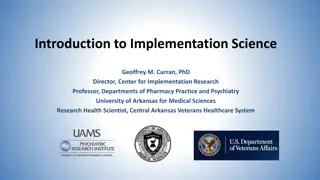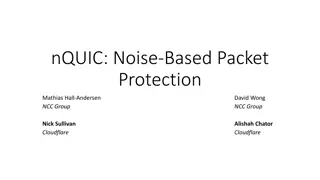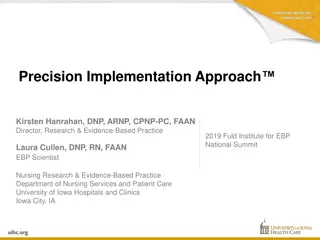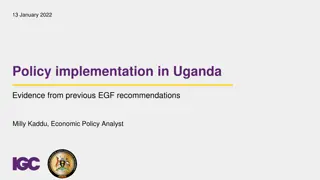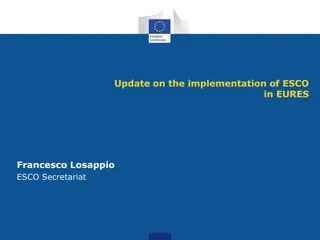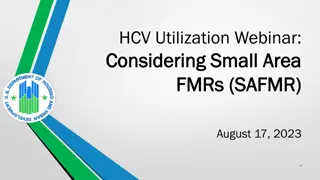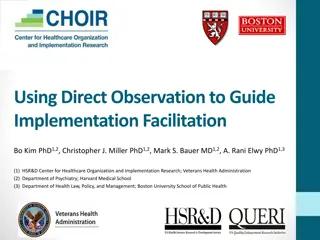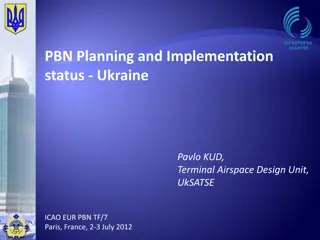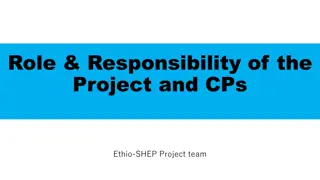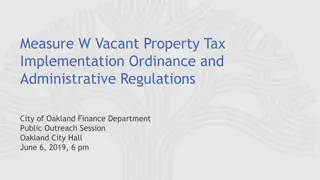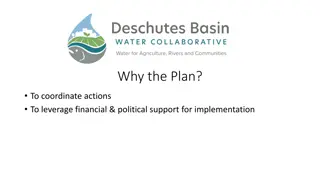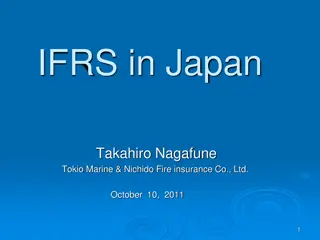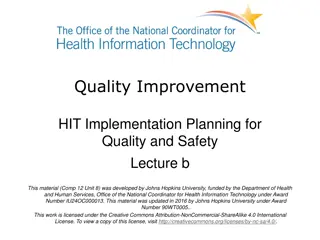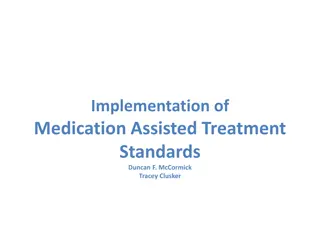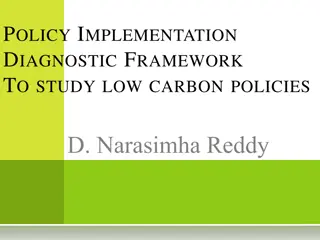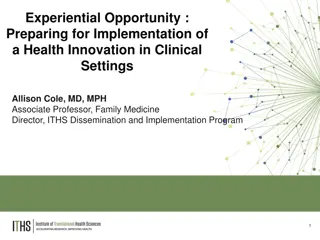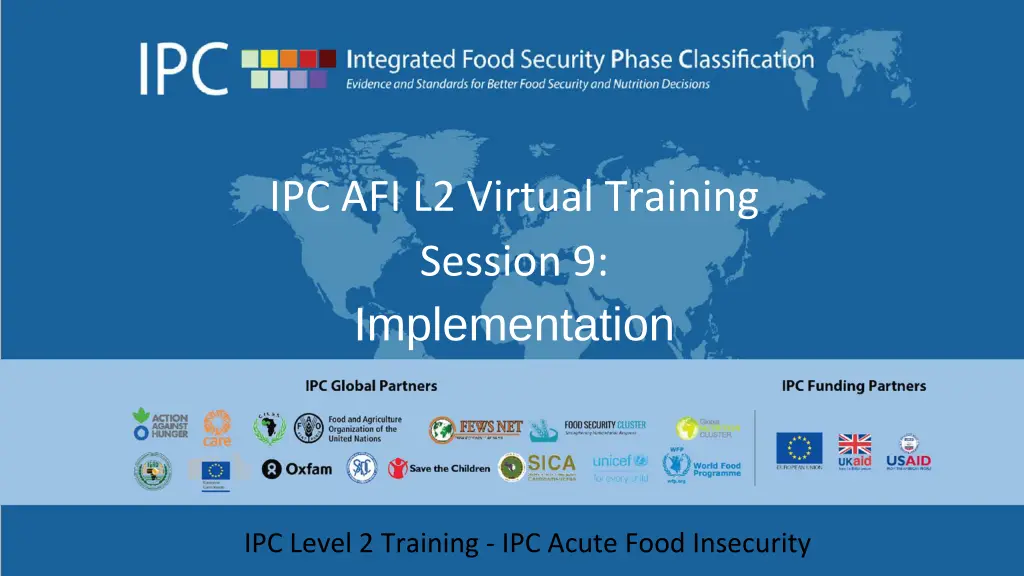
Implementing IPC Level 2: Acute Food Insecurity Training
Explore the processes, roles, and responsibilities involved in IPC Level 2 Training focusing on Acute Food Insecurity. Learn about the key features, challenges, and importance of the IPC analysis cycle. Discover the complexities of consensus-building and the alignment of analysis planning with country response processes. Uncover potential strategies for effective group work in IPC analysis.
Download Presentation

Please find below an Image/Link to download the presentation.
The content on the website is provided AS IS for your information and personal use only. It may not be sold, licensed, or shared on other websites without obtaining consent from the author. If you encounter any issues during the download, it is possible that the publisher has removed the file from their server.
You are allowed to download the files provided on this website for personal or commercial use, subject to the condition that they are used lawfully. All files are the property of their respective owners.
The content on the website is provided AS IS for your information and personal use only. It may not be sold, licensed, or shared on other websites without obtaining consent from the author.
E N D
Presentation Transcript
IPC AFI L2 Virtual Training Session 9: Implementation IPC Level 2 Training - IPC Acute Food Insecurity
Preparatory reading Processes, roles and responsibilities Function 1 IPC manual v 3 Part 1 Read IPC technical manual v.3 Read IPC technical manual v.3 Read IPC technical manual v.3 Section 1.10 Section 1.11 Section 1.12 Section 1.14 Function 1 Section 1.5 Section 1.6 Section 1.8 Section 1.9 IPC analysis checklist, ToRs, best practices
Learning objectives Part 1 Processes, roles and responsibilities Function 1 1. Identify the key features and challenges of the IPC 1. Identify the analysis cycle 1. Identify importance of plurality 1. Identify the roles and responsibilities during the analysis (L2 vs. L3) 1. analysis team composition Identify options for 1. Identify the relevance of IPC for decision makers 1. Analysis tools? 1. Identify challenges to and recommendations for consensus
IPC Manual v 3.0 Part 1 IPC Level 2 Training - IPC Acute Food Insecurity
Analysis planning is not always aligned with country response processes In-country resourcing of the IPC is variable Analysis of drivers does not always meet decision- makers need IPC ANALYSIS KEY challenges IPC classification is only as robust as the evidence used and how it is analyzed The convergence of evidence approach often identifies contradictory evidence Consensus-building is a time- consuming process, and agreement is not always reachable The IPC is not a guarantee that the requisite action will follow
IPC Processes Roles and Responsibilities IPC Level 2 Training - IPC Acute Food Insecurity
Facilitation team Technical Working Group & Analysis Team Analysis Team Technical Working Group IPC analysis cycle
Potential Strategies for Group Work Small Large Small Expert professionals carry out preliminary analysis which are validated and revised by a larger group. Selected professionals revise and finalize analysis Large Small Large Various professionals carry out preliminary analysis which are reviewed and revised by a selected expert group. Then large group makes final validation Many Small or Large Many Professionals carry out preliminary analysis for many different areas which are reviewed and revised by small or large group of peers. Then many small groups make final validation
AN EXAMPLE OF HOW TO ORGANIZE THE ANALYSIS TEAM Lead Co-Lead Co-facilitator group 2 Co-facilitator group 3 Co-facilitator group 9 Co-facilitator group 1 Analyst group 1 Analyst group 1 Analyst group 1 Analyst group 2 Analyst group 2 Analyst group 2 Analyst group 3 Analyst group 3 Analyst group 3 Analyst group 9 Analyst group 9 Analyst group 9 Analyst group 1 Analyst group 1 Analyst group 2 Analyst group 2 Analyst group 3 Analyst group 3 Analyst group 9 Analyst group 9 Analyst group 1 Analyst group 2 Analyst group 3 Analyst group 9
IPC Analysis team is comprised of. Lead Facilitator: Lead facilitator should be IPC Level 3 certified from the country or the region. In addition or in alternative, GSU will ensure a Lead Facilitator will support the analysis, either from GSU or from a Global Partner. LEAD (AND ARE ACCOUNTABLE OF) THE WHOLE ANALYSIS PROCESS Co-lead Facilitator: the Lead facilitator is often accompanied by a co-lead facilitator, IPC Level 3 certified or applicant, from the country or the region. In addition or in alternative, GSU will ensure co-lead facilitators to support the analysis, either from GSU, from Global Partners or through the CCLE program. ENSURE SMALL GROUPS CO- FACILITATION AND SUPPORT THE LEADS AS NEEDED Co-facilitators: the IPC Co-Facilitators should be IPC Level L2 or L2 applicant from the country or from the region (CCLE). If no L2 or L2 candidates are available in the country, GSU will ensure support from Co-facilitators to support the sub-groups analysis through the CCLE program. PARTICIPATE AND CONTRIBUTE TO THE ANALYSIS WITH THEIR EXPERTISE Analysts: When possible, the analysis should be conducted by IPC Level 1 certified analysts or at least by analysts who have attended the IPC Level 1 training.
IPC ANALYSIS PREPARATION for L2 Assist the lead facilitator in the planning and preparation phase and participate in any meetings organized for this purpose. Review with the lead facilitator the previous Self Assessment Tool, to ensure main bottleneck are addressed before the new analysis. The main tasks you might be asked to perform by the analysis Lead could be : DATA PREPARATION: Support in gathering evidence and organize them in dropbox by area, support in re-analysing data according to IPC thresholds (if competent in this field) PARTICIPANTS: Support the identification of analysts to be invited to the IPC analysis, support the preparation of invitation letters, keep records of confirmations, etc LOGISTICS: check the venue connection, hardware available, etc
IPC ANALYSIS PREPARATION for L2 Be part of the country ISS task force in charge of preparing the analysis in ISS, namely: Upload shapefiles, country population, area description, seasonal calendar Upload individual evidence into step 2, snip, analyse, build narrative statements into step 3 Support any IPC training that takes place before the analysis (Full Level 1 training, Tailored Refresher Training,) by presenting on key sessions as agreed upon with the lead facilitator/facilitation team If you are a CCLE, you might be asked to familiarize with the food security situation in the country
IPC ANALYSIS WRAP UP for L2 Lead small groups for the communication report if the compilation is organized by groups Support the Lead Facilitator in the finalization of the brief, provide comments and support in the final revision If you are a CCLE, make sure you address the plenary to share briefly your experience and takeaways for IPC in your country
When assigned to an analysis, the CCLE act as co-facilitators and are asked to fulfil the SAME tasks described for country co-facilitators. In addition: As CCLE, you should ensure you engage with the country facilitation team at an early stage, to ensure you support also the preparation phase As CCLE, you are expected to familiarize yourself with the country context A CCLE co-facilitator should be introduced to the analysis team at the start of the analysis and your role should be clearly stated If you are a CCLE, make sure you address the plenary to share briefly your experience and takeaways for IPC in your country When back at home, make sure you share your experience with the IPC TWG in your country, sharing what you learnt in your experience As CCLE, you are expected to complete the CCLE Self Assessment after your experience
Place the role and responsibility into the appropriate place in the analysis process: pre-analysis, during analysis or post analysis Agree on scenarios for Projections Step 1, 2 and 3 in ISS Refer to the lead facilitator for any issues affecting the quality of the analysis. Share any difficulties and concerns that arise in the analysis process Check worksheet quality Present key sessions of an IPC refresher training Prepare Key messages for the analysis Sub Group Participate in daily meetings to discuss analysis progress During Pre During During Pre During/Post During
IPC Function 1 IPC Level 2 Training - IPC Acute Food Insecurity
IPC Global partners Technical specialists Local NGOs Government INGOs Plurality Government ministries UN agencies Academia GSU CCLEs
Protocol 1.1 Key drivers Possible analysis team members Displacement IOM, UNHCR, CCCM Cluster Conflict analysts, access working group, Security Officers of different agencies (UNDSS, OCHA, WFP) Conflict Economists, value chain analysts, HEA experts (Most Partners) Economic/livelihood Market analysts, cash actors, Gov. ministries Price/commodities
Protocol 1.1 Contributing factors Possible analysis team members Locusts ? Climate ? Transhumance ? Floods/disaster National Disaster Management Authority Humanitarian food Analysts or programme? assistance Import/export or ? logistical issues
Protocol 1.2 Focusing on evidence-based analysis, not on opinions Space for communicating and addressing dissenting views Presentation of IPC results to key decision-makers before public release If Consensus is not achieved: Documenting and recording dissenting views If necessary, undertake a Quality Review Most frequent option from lighter to stronger approach when the RTQR is not requested: - Mention of disagreement in the methodology session - Disclaimer in the maps and population tables indicating the disagreement and on which areas - Annex a minority Report to the IPC brief while maintaining the logo - Withdrawal of the logo from dissenting agency
Protocol 1.2 Look for consensus / Agreeing within small group of analysts When lack of consensus in the small group, report the core issue to the facilitation team daily meeting and seek others facilitators advice and opinions Feedback loop to the small group proposing the solutions discussed in the facilitators meetings Don t get blocked in the analysis, if lack of consensus on one area, proceed with the others and bring the lack of consensus to the plenary In the plenary, expose the divergences in a neutral and transparent way without taking sides and let the plenary discuss The plenary final conclusion will have to be accepted by the small-group. If not, proceed with the different options exposed (from documentation to RTQR)
Important Links 1.IPC Website 2.IPC Analysis Portal 3.IPC Global Strategic Programme (IPC GSP) http://www.ipcinfo.org/ http://www.ipcinfo.org/ipc-country-analysis/ http://www.ipcinfo.org/ipcinfo-website/ipc-global-partnership-and-programme/en/ http://www.ipcinfo.org/ipcinfo-website/ipc-systems-login/ipc-certification- programme/en/ 4.IPC Certification Program 5.IPC Online test 6.IPC Contacts and Offices 7.IPC Events Calendar 8.IPC SharePoint Calendar 9.IPC Training Evaluation Survey 10.Encuesta de Evaluaci n de Capacitaci n CI F 11. valuation de la formation IPC 12.Evaluation of CCLE Beneficiaries 13.CCLE Self Evaluation http://23.23.115.229/ http://www.ipcinfo.org/ipcinfo-website/contacts/en/ http://www.ipcinfo.org/ipcinfo-website/events/en/ https://unfao.sharepoint.com/sites/ipc/Lists/Calendar/Overlay%20Calendar.aspx https://www.surveymonkey.com/r/BTBM7XZ https://www.surveymonkey.com/r/IPClearning https://www.surveymonkey.com/r/XN867VG https://forms.gle/JsaWGdib6ZjWQMNu5 https://forms.gle/JMFQmHrKMmiwmixEA
Group exercises IPC Level 2 Training - IPC Acute Food Insecurity

